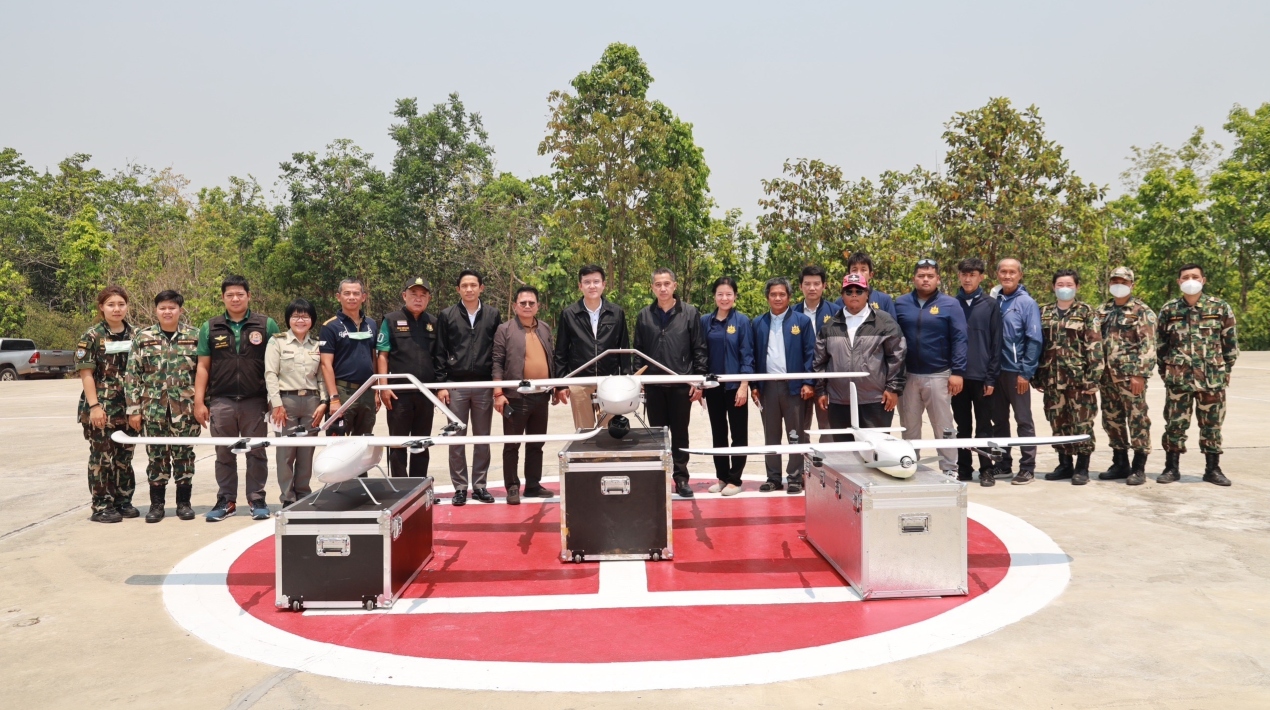
To fight the growing forest fire problem, Thailand is utilising drone technology. Funding has been made available from the Ministry of Digital Economy and Society to encourage the use of drones in national park inspections, particularly for detecting forest fires in high-risk areas.
The Ministry of Digital Economy and Society (DE) has provided funding for the project to aid in inspecting and monitoring the Mae Wang National Park in Chiang Mai Province. This project’s primary goals include land and territory monitoring, map making and identifying high-risk areas for forest fires. Officers will be alerted as soon as a hotspot is spotted so that they may dispatch a firefighting crew to put out the blaze as soon as possible.
Drone inspections have significantly reduced the number of forest fires in Mae Wang National Park in Chiang Mai Province, with only 75 occurring in the past year compared to 130 the year before.
“The importance of providing funding support to the National Park Service and the Forest Service to take care of forest areas and extinguish forest fires. The use of digital technology, particularly drones, would improve forest inspection and hot spot detection,” the Minister of Digital Economy and Society, Chaiwut Thanakmanusorn, emphasised.
The action is part of a bigger plan to protect forest land, put out forest fires, and deter the illegal felling and burning of trees. Chaiwut suggested the problem of forest fires in Thailand may be solved by constantly flying drones in all areas. He said the money set up for drones should be used to enhance forest inspection technology in every way possible.
Drones can monitor for forest fires and prevent unlawful burning by keeping people out of protected zones. Patrolling the region using drones can also deter criminals from committing illegal acts, improving safety and security while safeguarding the environment.
Dust and smoke from forest fires in Thailand and other countries were also considered in Chaiwut. He conceded that it was a significant problem that farmers were burning fields before planting. To protect the ecosystem and their livelihoods, he pleaded with the public to work together to raise awareness of the issue of forest fires and to avoid burning.
Chaiwut also thanked the Ministry of Natural Resources and Environment’s employees, particularly those working in the park and forest, for their unrelenting efforts in preventing forest fires. He admitted that the dry weather and the build-up of leaves on the ground contributed to the significant forest fires this year, which made it a challenging year for forest firefighters. However, he urged them to keep making progress towards their goals.
Drone technology’s application to fighting forest fires is an encouraging step forward for Thailand’s forestry efforts. Drones have also been used in the country’s agricultural sector. For example, drones are being utilised in Chiang Khan District, Loei Province farm to apply biochemicals. The research that informs farming practices around Chiang Khan is also the basis for this strategy. During the subsequent visit, data will be collected, and the depa will be notified of the project’s development.
More drones have been used by farmers in the Pin Fah Farm area of Pathum Thani Province, Thailand, as part of a new smart farm initiative. The drone spreads fertiliser, insecticides, and other chemicals across fields in Pin Fah farms. Therefore, it aims to increase efficiency and improve the health of farmers. The new farm received funding from a visit from Chaiwut Thanakmanusorn, the Minister of Digital Economy and Society.
















